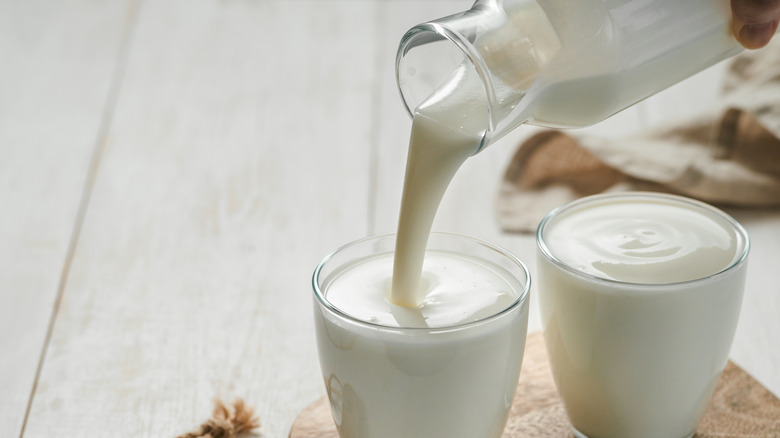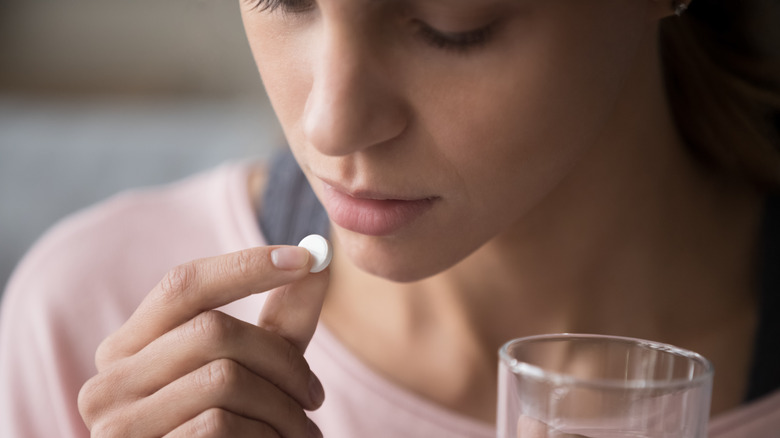Why You Should Think Twice Before Eating Dairy If You're On Antibiotics
Antibiotics can be a godsend for a number of conditions. What you may not know, however, is that if you are prescribed antibiotics, you may need to be careful with your diet. Dr. Richard Liebowitz writes at Everyday Health that for antibiotics to work properly, they must reach the infected area, which requires first being absorbed into the bloodstream from the gastrointestinal tract.
This is a fairly delicate process that may be influenced for better or worse by a variety of factors. One of these factors is something that most of us consume on a daily basis — food. While some antibiotics have fewer side effects or are absorbed better when they are taken with food, food can be detrimental to the absorption of other types of antibiotics. Whether or not food generally mixes with your antibiotics is a question that is often answered on your prescription bottle.
But what if you are planning on taking your antibiotics with a glass of milk?
Some antibiotics should not be taken with dairy
If you are taking antibiotics, you may want to avoid taking them with that glass of milk. According to The Pharmaceutical Journal, the calcium in milk can bind with the medicine and prevent it from entering the bloodstream. This will decrease the effectiveness of the antibiotics. For this reason, it is best to avoid milk for two hours before and two hours after taking the medicine. This also applies to other forms of dairy including cheese, butter, cream, and any other products that contain calcium.
However, this limitation is not present for all forms of antibiotics. According to Dr. Richard Liebowitz, it is mainly a problem for tetracyclines, which are used to treat severe acne and many bacterial infections including syphilis and gonorrhea (per Everyday Health). If you are curious about whether your antibiotics can be taken with dairy or any other type of food, it never hurts to ask your pharmacist.


